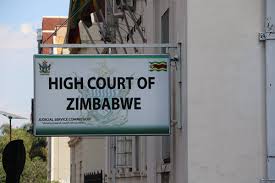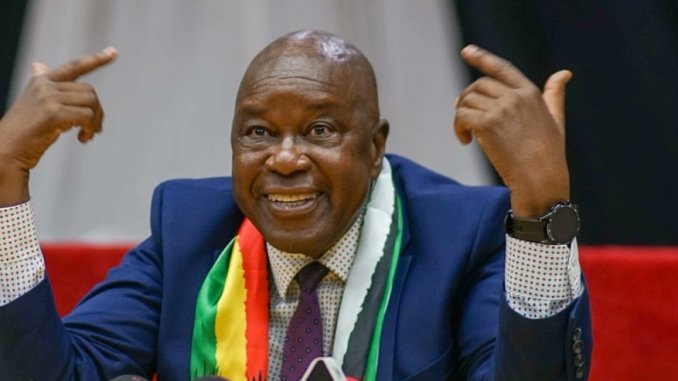By Victor Fanuel
Harare – The High Court of Zimbabwe has dismissed a constitutional challenge to Section 22A(2)(b) of the Criminal Law (Codification and Reform) Act, widely referred to as the Patriotic Act.
Filed by biomedical scientist and software engineer Freeman Chari, the application argued that the provision was vague and infringed on freedoms of expression and political rights under Sections 61 and 67 of the Constitution.
Chari, represented by Shava Law Chambers, listed the Minister of Justice and the Attorney-General of Zimbabwe as the first and second respondents, respectively.
The court ruled that the contested section was sufficiently precise and did not violate constitutional rights.
Justice Dembure held that terms such as “subverting”, “upsetting”, “overthrowing”, or “overturning” the constitutional government could be interpreted according to their ordinary meanings.
The judge also emphasized that the law does not criminalize criticism of the government or peaceful efforts to pursue democratic change.
“The applicant is misreading the meaning of the words ‘subverting, upsetting, overthrowing or overturning the constitutional government’ as read in the context of the whole provision.
“Participation in lawful activities meant to influence policy making, or an alternative system of governance or hold the government to account for its policies, does not fall within the conduct proscribed under s 22A(2)(b).
“The provision does not violate in any way the constitutionally protected political rights set out in s 67. The applicant cannot claim to have a right to do any of the four activities proscribed by the provisions of s 22A (2)(b).”
Justice Dembure cited the importance of interpreting statutes in a manner that gives effect to the intention of the legislature and promotes the purpose of the law.
The court also reiterated the principle that the Constitution is a living document that must be interpreted in a way that breathes life into its provisions.
The application was dismissed with no order as to costs.
“The applicant has failed to discharge the onus to show that the provisions of s 22A (2)(b) of the Act are unconstitutionally vague and violate the applicant’s fundamental rights or freedoms under ss 61 and 67 of the Constitution. The application is without merit and cannot succeed,” the judge ruled.
“In their opposing papers, the respondents moved for the dismissal of the application with costs. However, at the hearing, Mr Chimombe submitted that the application must be dismissed with no order as to costs.
The settled position of the law is that the courts generally do not award costs in constitutional matters unless there is conduct warranting such costs. This principle was restated in Bere v JSC & Ors CCZ 10/22, where the Court said:
‘The respondents appear to have disregarded r 55 of the Rules which, in keeping with the established practice of this Court, provides that generally no costs are awarded in constitutional matters.
“This practice was recently reaffirmed in Mbatha v Confederation of Zimbabwe Industries & Anor CCZ 05-2021, at p. 11. In my view, there is no basis or justification in this case to depart from the norm of not awarding costs in a constitutional matter’.Wildlife safaris in Zimbabwe
Justice Dembure stated: “The remarks in the above judgment apply with equal force in this case. There is no reason or justification to depart from the same principle and mulct the applicant with an order for costs.
“Accordingly, it is hereby ordered as follows: The application is dismissed with no order as to costs.




